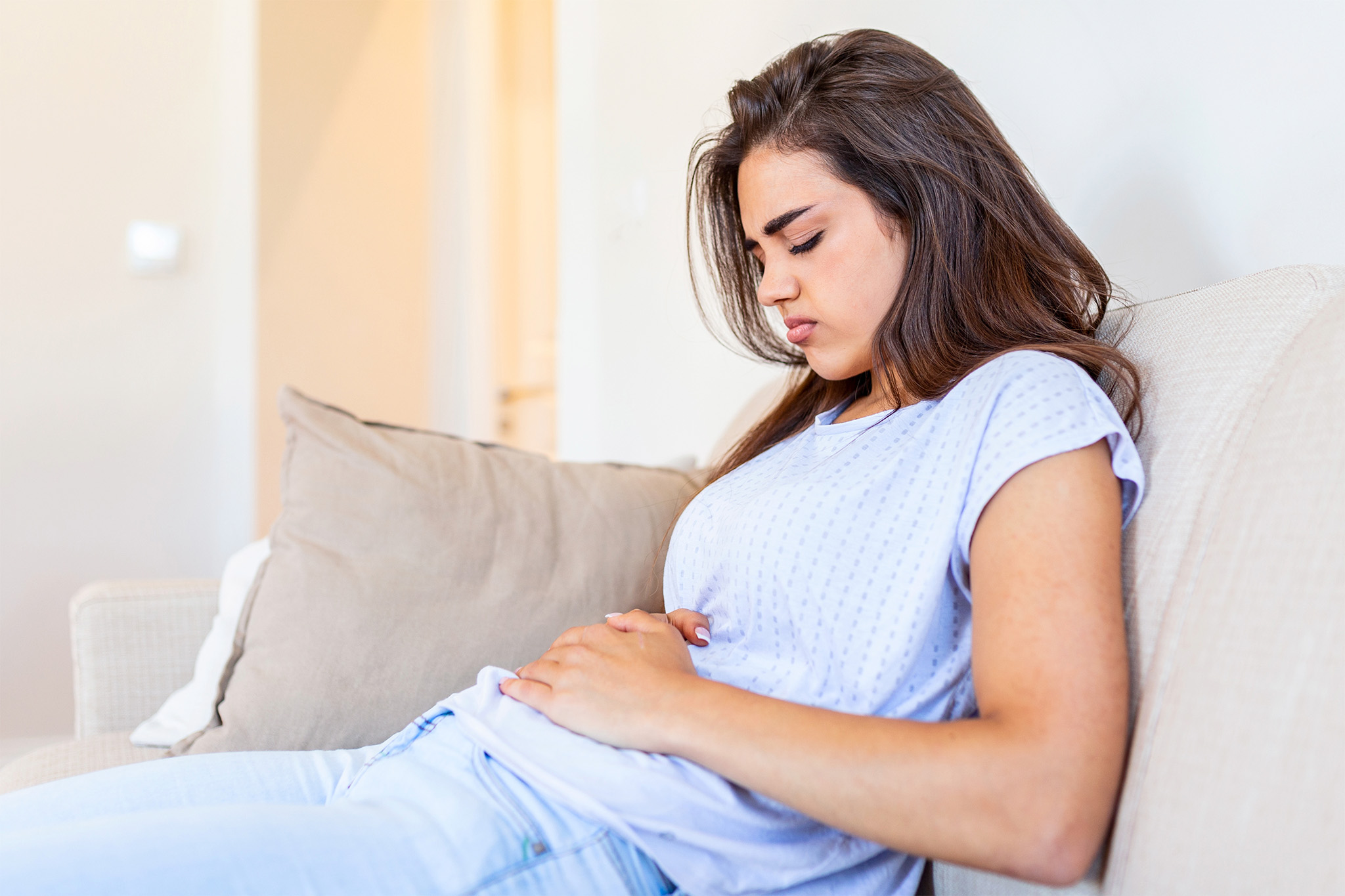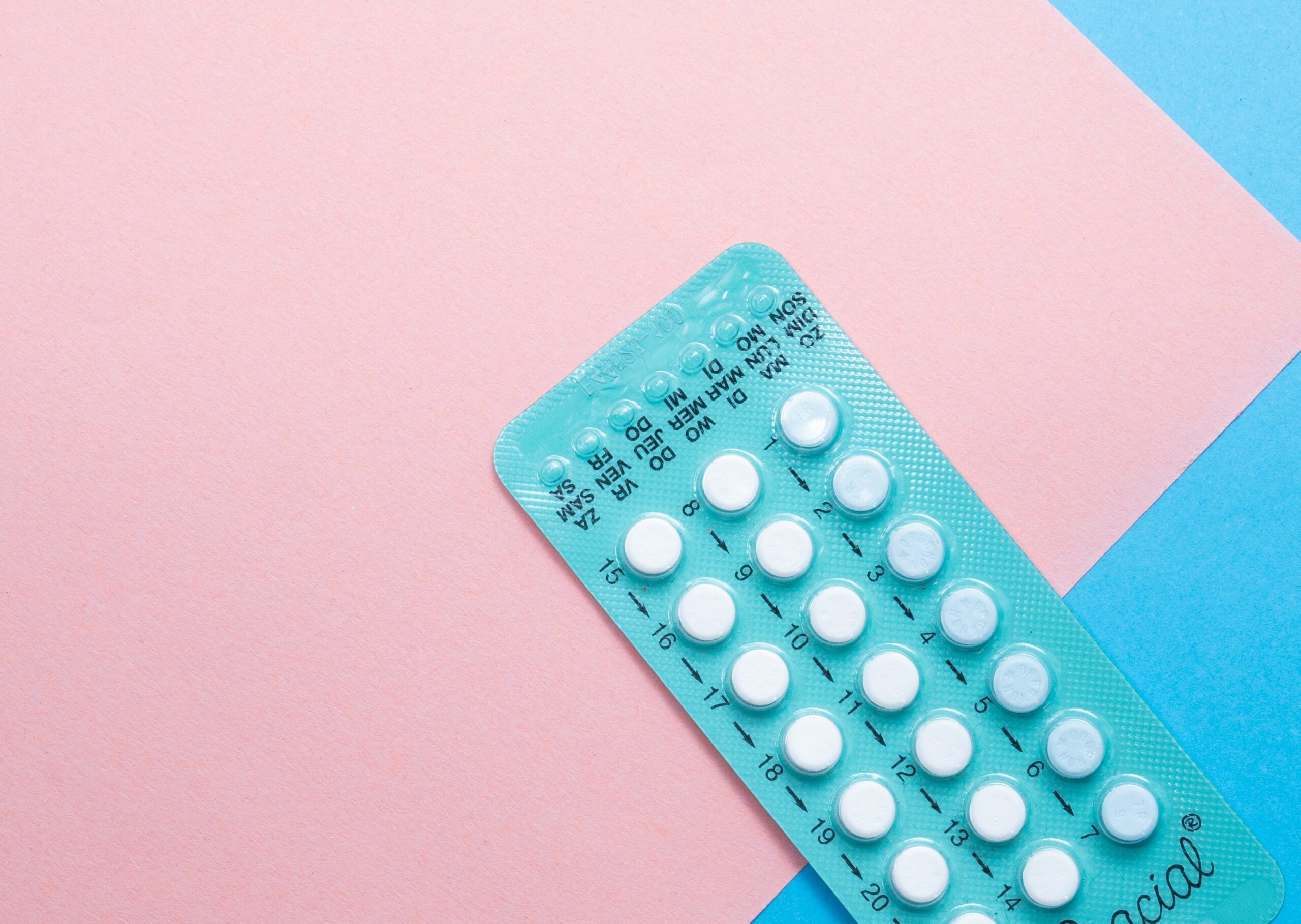Have you noticed that your gut functions differently depending on where you are in your cycle? That every time you are about to have your period, your gut gets messed up, or your already loose stools become worse?
You are not imagining it – female hormones do affect the gut, especially through pain sensitivity, how fast the gut contents move (motility), and indirectly through greater stress sensitivity (1-4). Female hormones could explain why women tend to have more IBS than men in general, and more IBS-C than men (1,2). In this article, I briefly go over what this means in terms of gut symptoms.
Menstrual cycle
First, let’s briefly discuss the menstrual cycle. There are three phases:
| Phase | Days | Estrogen and progesterone | Gut impact |
| Menstruation phase | 1-7 | Both are low | Faster motility, higher risk of diarrhea, urgency Increased pain sensitivity |
| Follicular phase | 8-14 (until ovulation) | Estrogen: Increases until peaks at ovulation Progesterone: low | Slower motility |
| Luteal phase | 15-28 | Estrogen: high, drops quickly Progesterone: high | Slower motility |
Female hormones and the gut
Now, let’s dive into how female hormones can change how the gut functions.
Motility
Very simply put (I discuss this subject in more detail in my IBSwise course), estrogen affects the gut by lengthening gut transit time, which means that gut contents move slower through the intestines. When estrogen levels are high, gut moves slower, and when estrogen levels drop, gut motility increases. This is probably why women tend to be more prone to IBS-C, and have constipation especially during follicular and early luteal phases, and higher chance of diarrhea around menstruation. During pregnancy, estrogen levels are high, which could at least partially explain why constipation is so common in pregnant women, especially during the third trimester. (1,2)
On the other hand, progesterone’s effect on gut motility is not as clear, as it affects serotonin mechanisms also, but the overall effect seems to be similar to estrogen: higher levels are associated with slower gut movements (1).
Pain sensitivity
It’s unclear how estrogen affects pain sensitivity, but it looks like changes in estrogen predispose to pain, such as a few days after ovulation when estrogen levels drop quickly (6). Pain sensitivity has also been found to be higher around menstruation when there is an increased number of serotonin receptors due to low estrogen, which leads to detecting pain and sensations more easily. Estrogen affects inflammatory pathways as well, which can lead to higher sensitivity – in IBS it has been noted that the number of a certain estrogen receptor is often high, which increases inflammation and therefore pain sensitivity (1,3,4).

Stress
Another mechanism that can increase gut symptoms in women is that women are naturally more reactive to stress than men. Female sex hormones have been connected to HPA-axis activity, and to a higher limbic system activity (1-3). This all lowers the threshold for a stress response to be triggered in the body, which leads to gut issues, especially in IBS.
Birth control?
What about women on birth control? According to Dr. Liao (5), birth control that allows for menstruation doesn’t protect from hormonal gut changes, but ones that skip menstruation could. Discuss with your doctor if you feel that at different phases of your cycle you experience difficult symptoms, whether it’s constipation during follicular and early luteal phase, or diarrhea and pain around menstruation phase. Still, even though female hormones seem to affect gut symptoms, data doesn’t support utilizing hormone therapies for women with IBS (3).

What can you do about it?
If your gut behaves differently during different phases of the menstrual cycle, it’s nice to know it is caused by your hormones. While I don’t recommend observing gut symptoms too closely, knowing when you are more likely to have diarrhea vs constipation could help you anticipate these changes.
Perhaps you can prepare a bit, also – if you are often constipated outside of menstruation, you could increase the amount of fiber you eat at that time of the month, whereas if you experience diarrhea during and close to menstruation, you could utilize soluble fiber from chia seeds, flaxseed and oatmeal. Additionally, focusing on anti-inflammatory foods during menstruation may be useful, like eating lots of colorful fruits and vegetables, and omega-3 rich foods, like walnuts, hempseed, and salmon, although these are important foods to eat every day.
So, female hormones and gut function are connected. Knowing how is useful, as you won’t be surprised by the changes, nor will there be a need to be worried. And you can make better food choices according to your cycle too.
Have a great summer!
Love,
Anna-Kaisa from AKWise

PS: Check out all the free giveaways on my home page!
References
- Meleine M, Matricon J. Gender-related differences in irritable bowel syndrome: potential mechanisms of sex hormones. World J Gastroenterol. 2014 Jun 14;20(22):6725-43. doi: 10.3748/wjg.v20.i22.6725. PMID: 24944465; PMCID: PMC4051914. 3
- Mulak A, Taché Y, Larauche M. Sex hormones in the modulation of irritable bowel syndrome. World J Gastroenterol. 2014 Mar 14;20(10):2433-48. doi: 10.3748/wjg.v20.i10.2433. PMID: 24627581; PMCID: PMC3949254. 4
- Pati GK, Kar C, Narayan J, Uthansingh K, Behera M, Sahu MK, Mishra D, Singh A. Irritable Bowel Syndrome and the Menstrual Cycle. Cureus. 2021 Jan 14;13(1):e12692. doi: 10.7759/cureus.12692. PMID: 33614302; PMCID: PMC7883586. 5
- Chen C, Gong X, Yang X, Shang X, Du Q, Liao Q, Xie R, Chen Y, Xu J. The roles of estrogen and estrogen receptors in gastrointestinal disease. Oncol Lett. 2019 Dec;18(6):5673-5680. doi: 10.3892/ol.2019.10983. Epub 2019 Oct 11. PMID: 31788039; PMCID: PMC6865762.
- Liao, S. Do Your Hormones Affect IBS? WebMD. https://www.webmd.com/ibs/hormones-ibs. Accessed 6/16/2024
- Athnaiel O, Cantillo S, Paredes S, Knezevic NN. The Role of Sex Hormones in Pain-Related Conditions. Int J Mol Sci. 2023 Jan 18;24(3):1866. doi: 10.3390/ijms24031866. PMID: 36768188; PMCID: PMC9915903.

